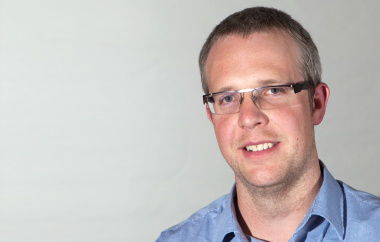PhD in Material Science
Current position: Full-time Staff Scientist at the Vlaams Instituut voor Biotechnologie (VIB), Belgium
Research focus: biosynthesis of noble metal nanomaterials and nanoparticles by living organisms
Adam, who helped build up the bionanotechnologies laboratory at VŠB-Technical University in Ostrava, Czech Republic focuses on biosynthesis, employing nature-derived processes to create nanomaterials. Unlike chemical approaches, it is low cost, energy efficient, and environmentally benign. His work has led to the synthesis of a functional nanomaterial containing diatom silica shells that can be used in the catalytic removal of nitrate pollutants. It also has defence-related applications, such as the hydrolytic decomposition of extremely dangerous nerve agents.
CV as submitted for the Green Talents award (2012):
Institute of Nanobiology and Structural Biology, Academy of Sciences, Czech Republic
Research focus: biosynthesis of noble metal nanomaterials and nanoparticles by living organisms
When it comes to finding ways to protect the environment, Green Talents winner Adam Schröfel takes his cue from nature itself. “Nature gives us the clues we need,” says the biochemist, who is now applying his expertise in the life sciences to developing biosynthetic nanomaterials. “Gaining a deeper understanding of structures of biogenic materials and cellular energy production can lead to cleaner energy production, biodegradable materials and reduced soil and water contamination.”
Schröfel, who helped build up the bionanotechnologies laboratory at VŠB-Technical University in Ostrava, focuses on biosynthesis, employing nature-derived processes to create nanomaterials. Unlike chemical approaches, it is low-cost, energy-efficient and environmentally benign. His work has led to the synthesis of a functional nanomaterial containing diatom silica shells that can be used in the catalytic removal of nitrate pollutants. It also has defence-related applications, such as the hydrolytic decomposition of extremely dangerous nerve agents.
Going “nano” has opened up a huge realm of possibilities for his work. Next up? Schröfel plans to use his material as an electrode catalyst in the hydrogen fuel cell.
The jury was impressed by Schröfel’s extensive research experience and excellent scientific results, recognising his work on the biosynthesis of nanomaterials and nanoparticles as a sustainable alternative to the chemical and physical synthesis of nanomaterials. By linking his work to higher contributions in sustainable development, Schröfel addresses an important area of research activity.






